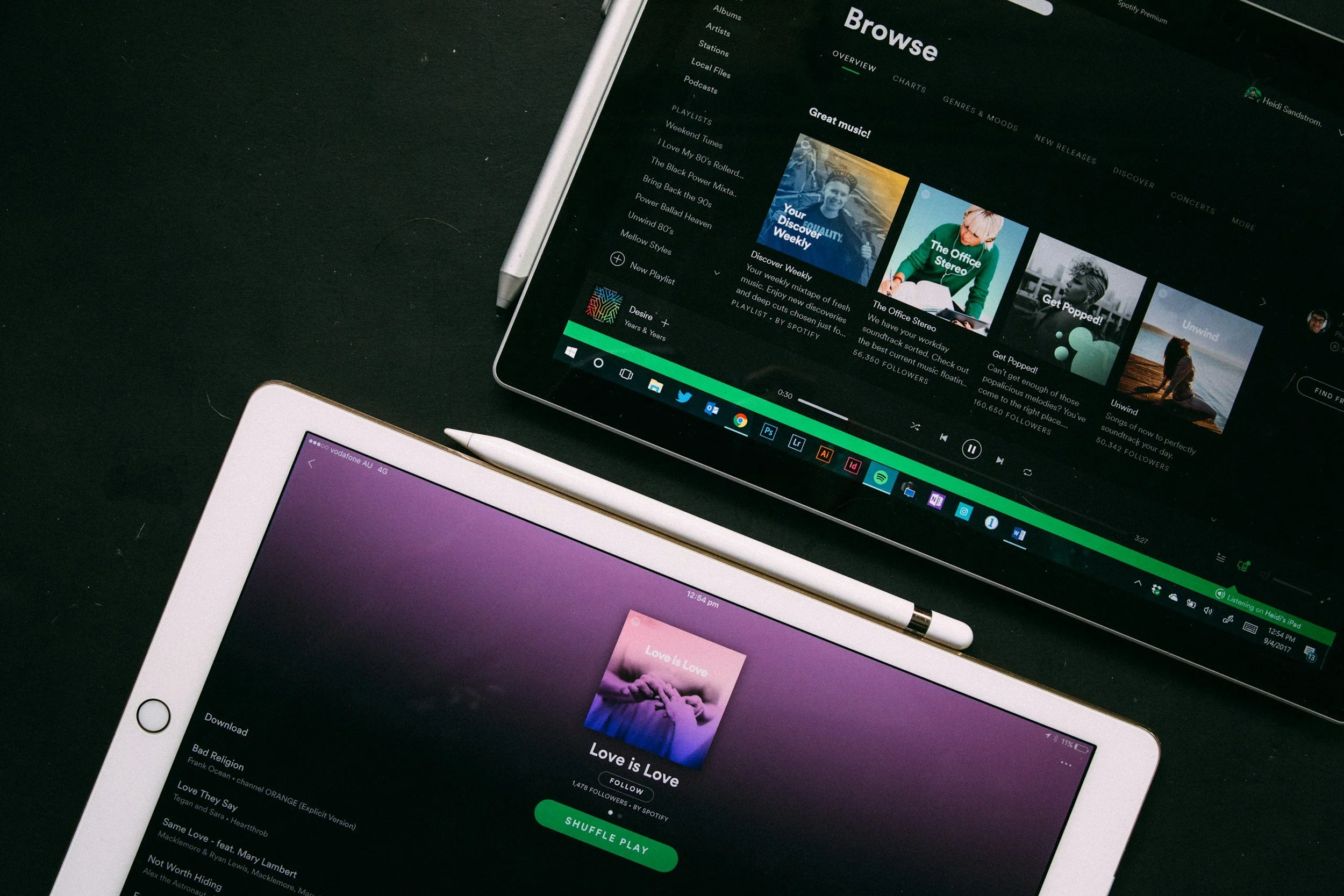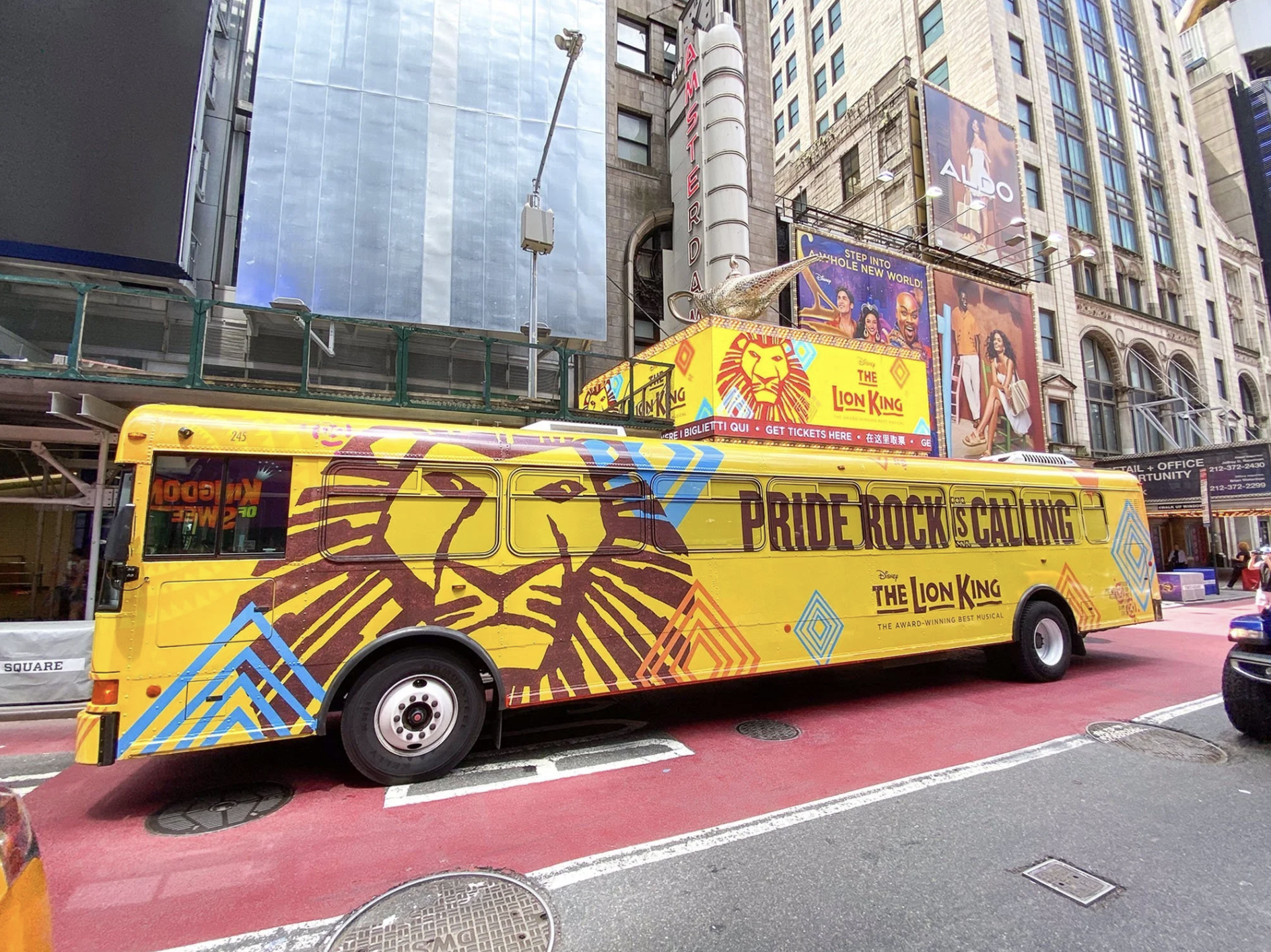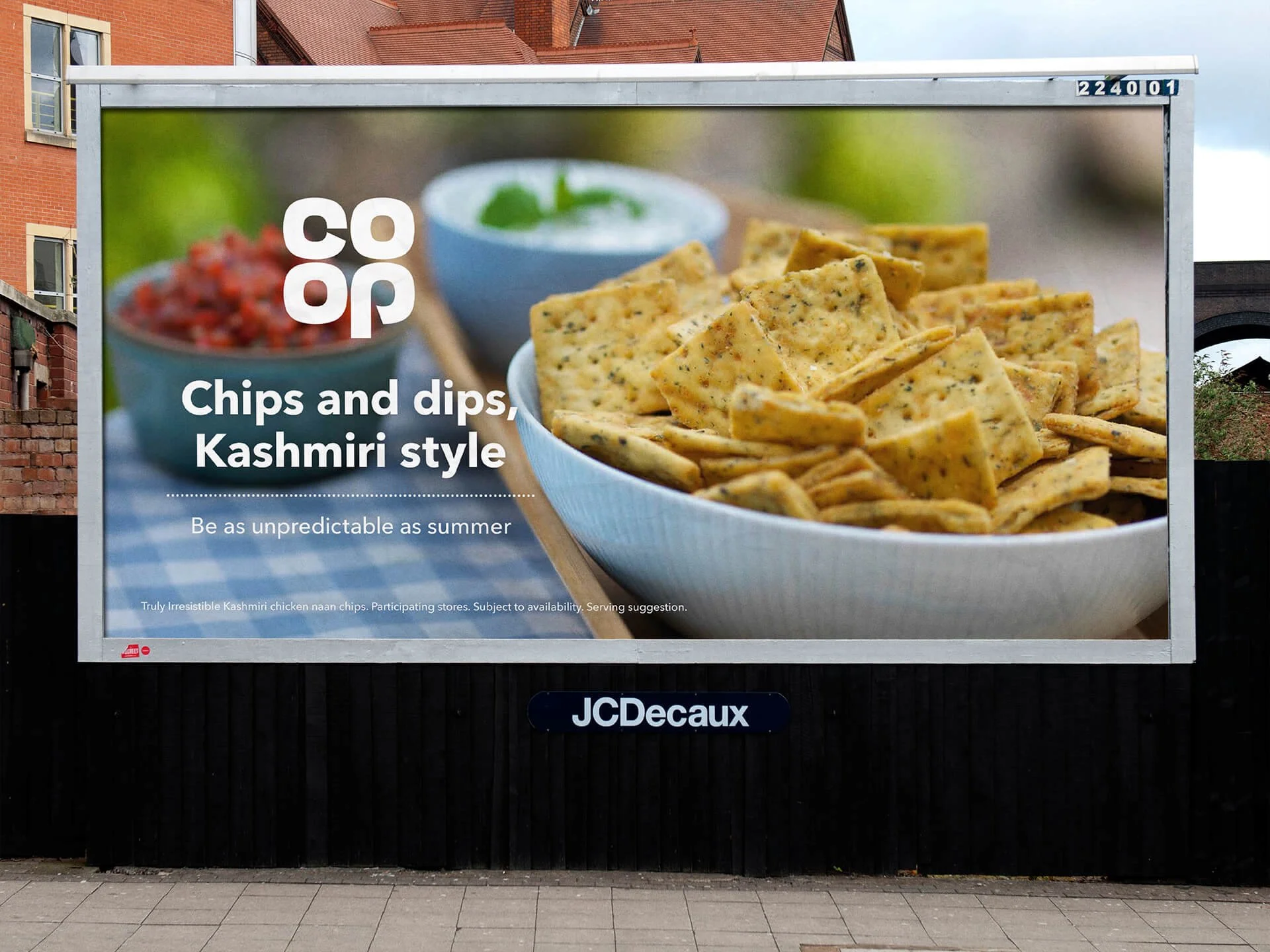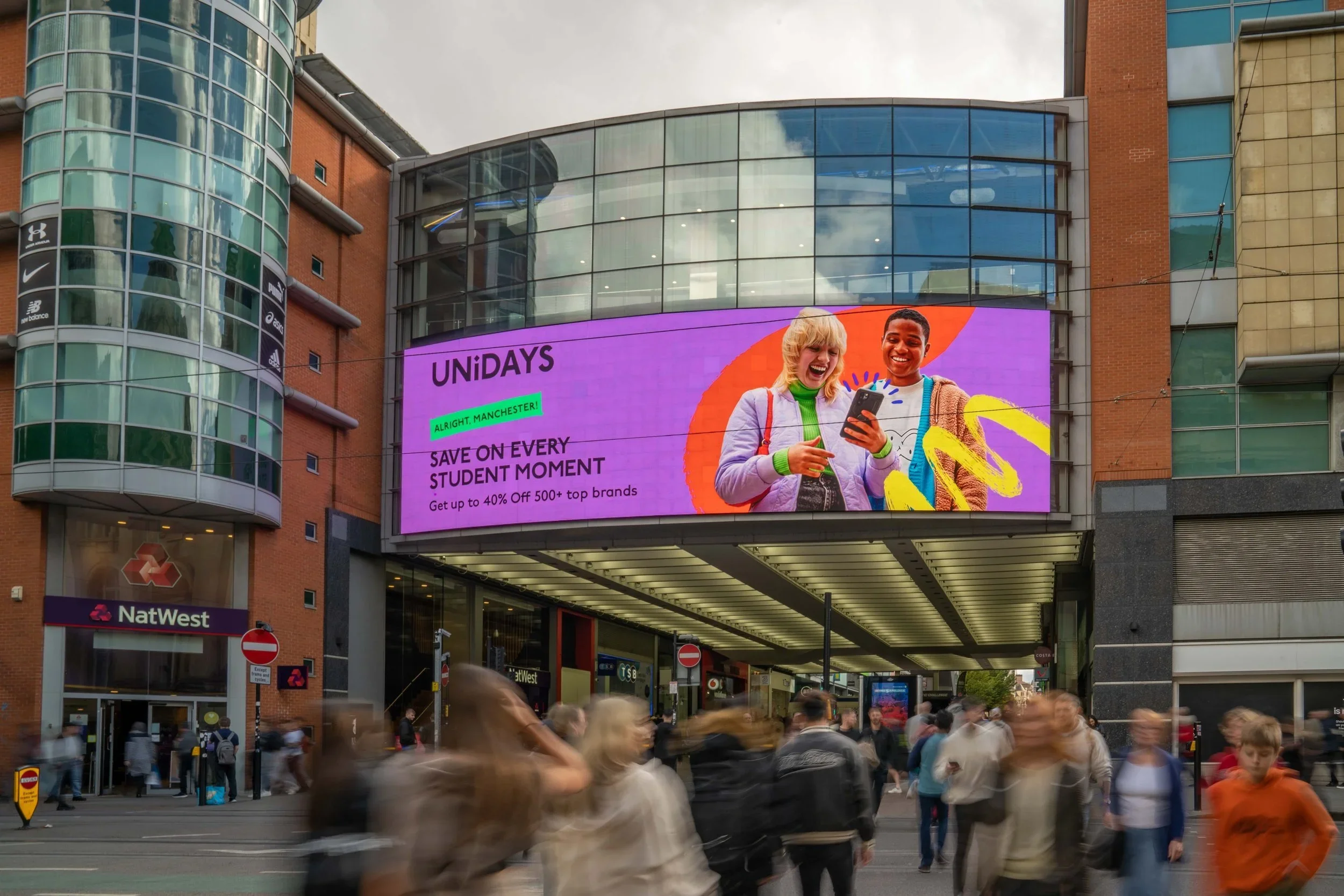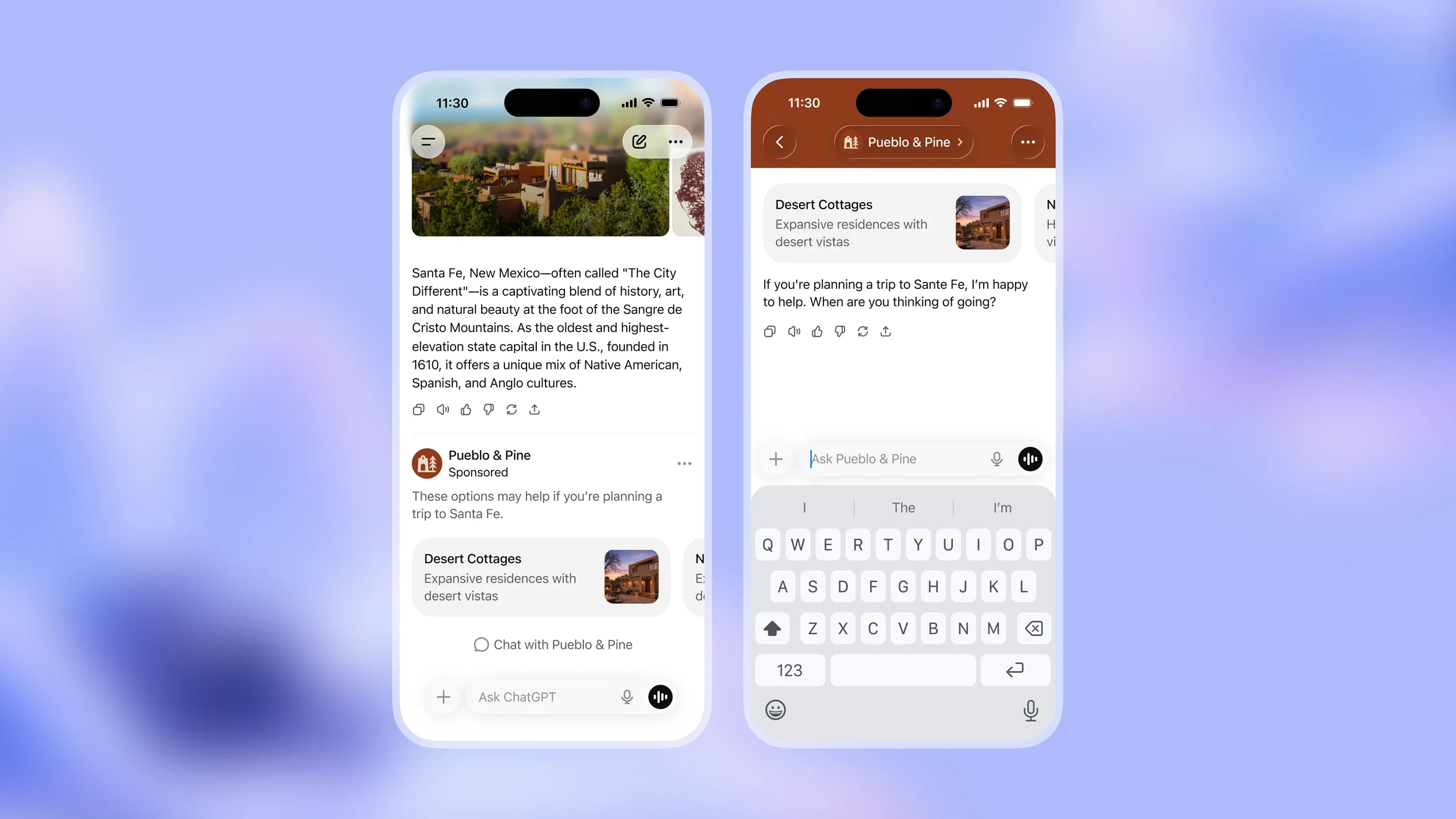The ultimate guide to Spotify Ads.
Spotify Ads.
Key Takeaways
Spotify offers scale with precision – combining global reach and rich first-party data to target audiences by mood, context, and behaviour, far beyond traditional radio.
Creative for the ear matters – short, conversational, moment-matched ads with sonic branding and clear CTAs perform best across formats.
The future is interactive and measurable – voice-activated ads, podcast monetisation, and AI-driven targeting are making Spotify a performance and brand-building channel in one.
Introduction
Spotify isn’t just a music-streaming platform. It’s one of the world’s most engaged digital environments, with hundreds of millions of monthly users, hours of daily listening, and an ad ecosystem that combines the best of digital targeting with the intimacy of audio.
For advertisers, Spotify Ads represent a unique opportunity. Unlike visual platforms that compete for shrinking attention spans, Spotify taps into moments where people are focused — commuting, exercising, cooking, studying — and delivers brand messages that feel both personal and relevant.
This guide covers everything marketers need to know about Spotify Ads: formats, targeting, creative best practices, and strategies for building campaigns that resonate.
Why Spotify Ads Matter
1. Reach at Scale
Spotify is the global leader in audio streaming, with users spread across virtually every demographic. Its ad-supported tier alone provides access to hundreds of millions of free listeners, making it one of the largest audio advertising platforms in the world.
2. Engaged Audiences
Unlike background TV or banner ads scrolled past on a feed, Spotify is often a lean-in experience. Listeners actively choose playlists, podcasts, or albums. Ads are woven directly into this environment, ensuring they are noticed.
3. First-Party Data and Targeting
Spotify has rich behavioural data: genres listened to, playlists followed, podcasts subscribed to, moods, times of day, devices, and more. This means advertisers can target far beyond traditional demographics, reaching people based on habits, context, and passions.
4. Multi-Format Integration
Spotify ads aren’t just audio. They include video, display, podcast, and interactive experiences, giving brands a full toolkit to combine awareness and performance goals.
Spotify Ad Formats
Spotify provides a range of ad formats designed for different campaign objectives.
1. Audio Ads
The foundation of Spotify’s ad offering.
Play between songs for free-tier listeners.
Typically 15 or 30 seconds, though longer options exist.
Can include clickable companion banners.
Best for: brand awareness, storytelling, and top-of-funnel messaging.
2. Video Ads
Spotify offers two video ad formats:
Video Takeover: Plays during active sessions when users are browsing.
Sponsored Sessions: Users watch a short video in exchange for 30 minutes of ad-free listening.
Best for: high-impact brand storytelling and rewarding engagement.
3. Display Ads
Static or animated units placed across the Spotify app:
Homepage Takeovers — premium placements that give brands the spotlight.
Leaderboard & Overlay Ads — appear when users return to the app.
Best for: reach, product launches, and reinforcing campaigns.
4. Sponsored Playlists
Brands can sponsor popular Spotify-owned playlists (e.g. RapCaviar, Peaceful Piano). Ads appear as branded tiles, with audio and visual integrations.
Best for: aligning your brand with culture and lifestyle contexts.
5. Podcast Advertising
Podcasts are one of Spotify’s fastest-growing areas. Through Spotify Audience Network, advertisers can buy host-read or dynamically inserted ads across thousands of shows.
Best for: contextual alignment, niche targeting, and longer-form brand storytelling.
6. Interactive Ads
Spotify continues to test interactive formats, such as:
Call-to-Action Cards — clickable visuals that appear alongside audio ads.
Voice-activated ads — allowing users to respond verbally (“Play now”, “Send me more”).
Best for: driving direct action and experimenting with new engagement models.
Targeting on Spotify
Spotify’s targeting capabilities are what set it apart from traditional radio.
1. Demographics
Age, gender, language, and location down to postcode-level.
2. Device and Platform
Target by mobile, desktop, smart speakers, game consoles, or cars.
3. Contextual & Behavioural
By playlist (workout, study, party).
By genre (rock, hip hop, classical).
By mood (chill, happy, focus).
4. Moments
Time of day (morning commute vs evening unwind).
Day of week (weekend vs weekday).
Seasonal trends (Christmas playlists, summer hits).
5. Podcast Interests
Sports, wellness, news, business, comedy, lifestyle and more.
6. Custom Audiences
Retarget users who engaged with previous ads.
Integrate CRM data for lookalike modelling.
This makes Spotify an effective channel for full-funnel campaigns, from broad awareness to retargeting warm leads.
Creative Best Practices for Spotify Ads
Great targeting means nothing without great creative. Here’s how to craft ads that cut through.
1. Write for the Ear
Audio is personal. Speak like a human, not a script. Use conversational language and short, sharp sentences.
2. Hook in the First Few Seconds
Listeners can’t skip Spotify audio ads, but attention can still wander. Lead with intrigue, a question, or a benefit immediately.
3. Match the Moment
Think about when and where your ad plays. A high-energy gym playlist may call for upbeat creative, while a late-night study mix might need calm, reassuring tones.
4. Use Sonic Branding
Music, jingles, or sound cues reinforce memory. Spotify’s environment makes sonic branding especially powerful.
5. Keep It Short
15–30 seconds is the sweet spot. If you need longer, make sure every second earns attention.
6. Integrate Calls-to-Action
Companion banners and CTA cards mean audio ads can drive clicks. Be clear about the next step (“Tap now to…”).
7. Leverage Voice Talent
Authentic voices work better than generic “radio announcers.” Consider regional accents, influencer voices, or even user-generated style delivery.
Strategies for Success
1. Combine Formats
Blend audio with display or video ads for multi-touch impact. For example: run an audio ad, then reinforce with a homepage takeover.
2. Align with Playlists
Sponsoring relevant playlists (e.g., “Morning Motivation” for a fitness brand) increases contextual relevance and emotional connection.
3. Test & Optimise
Spotify Ads Manager allows for split testing across creative, targeting, and formats. Optimisation is crucial for maximising ROI.
4. Localise Content
Spotify’s audience is global, but cultural nuance matters. Tailor creative by region, accent, and even music choice.
5. Use Sequential Messaging
Guide listeners through a story. For example: first ad introduces the brand, the second explains the benefit, the third delivers the offer.
6. Retargeting & Funnels
Pair Spotify with display and social. Retarget users exposed to audio ads with visual ads elsewhere for reinforcement.
7. Track & Measure
Key Spotify ad metrics include:
Impressions
Reach & frequency
Completion rates (for video)
Click-through rates (for companion banners)
Lift studies (brand awareness, purchase intent)
Combine with broader analytics to measure true business impact.
Advantages of Spotify Ads Over Traditional Audio
Precision: Unlike radio, Spotify allows fine-grained targeting.
Interactivity: Ads can drive clicks, swipes, and voice responses.
Flexibility: Campaigns can be turned on/off instantly and optimised in real time.
Measurement: Marketers can see direct impact, not just estimated reach.
Case Study Examples
Retail Brand – Playlist Alignment
A sportswear company sponsored fitness playlists while running upbeat audio ads. Result: significant uplift in brand recall and online sales among gym-goers.
Tech Product – Sequential Storytelling
A new smartphone brand ran a three-part ad sequence: awareness (“meet the new device”), consideration (“features you’ll love”), and conversion (“available now”). Result: higher purchase intent compared to a single ad run.
Food Delivery App – Voice Ads
By using interactive voice ads (“Say yes to get £10 off”), the brand engaged multitaskers cooking or driving. Result: increased app installs directly from audio.
The Future of Spotify Advertising
Spotify continues to innovate. Expect:
More interactive ads: Voice and AR-driven formats.
Deeper podcast monetisation: Host-read ads plus programmatic scaling.
AI-driven targeting: Hyper-personalised ads based on mood and behaviour.
Commerce integration: Direct “buy now” capabilities within Spotify itself.
For brands, this means the time to master Spotify Ads is now. Early adopters gain an edge in understanding creative formats, audience responses, and best practices before the platform becomes more crowded.
Final Word
Spotify Ads are more than just digital radio spots. They’re a full-spectrum advertising solution, blending audio intimacy with digital precision. With formats spanning audio, video, display, and interactive options, plus some of the most advanced targeting available, Spotify provides brands with a channel that is both emotional and measurable.
The opportunity is clear: reach people in the moments that matter most — when they’re relaxed, focused, or motivated — with messages that feel personal, contextual, and engaging.
The brands that win on Spotify will be those that respect the medium, craft creative for the ear, and align campaigns with the rhythms of daily life. Done right, Spotify Ads don’t just reach audiences — they move them. Looking to advertise on Spotify? Get in touch with One Day Agency today.
To learn more about Spotify Ads, get in contact today.

